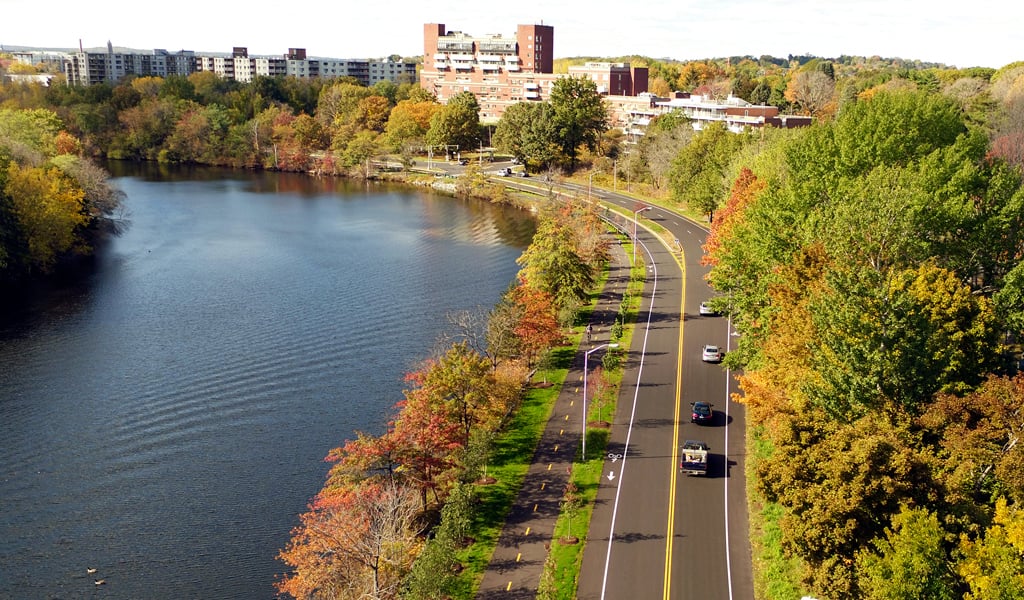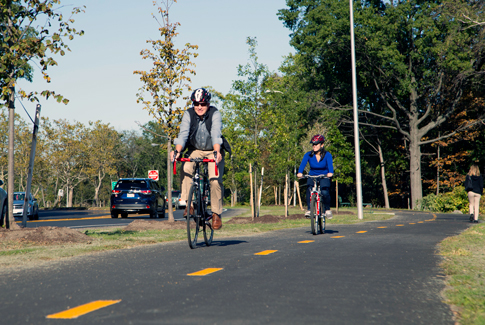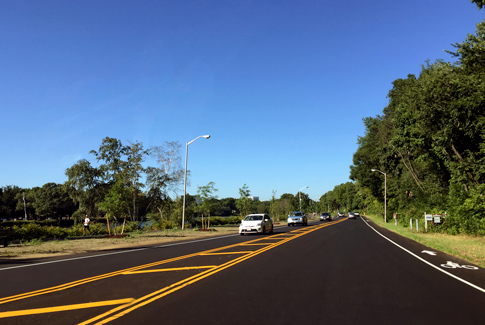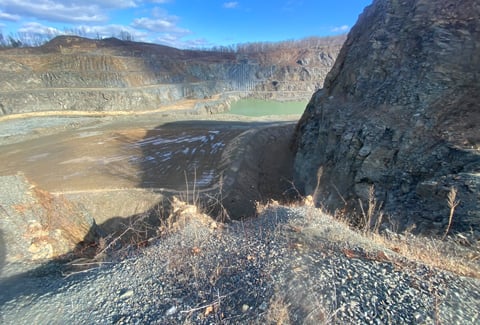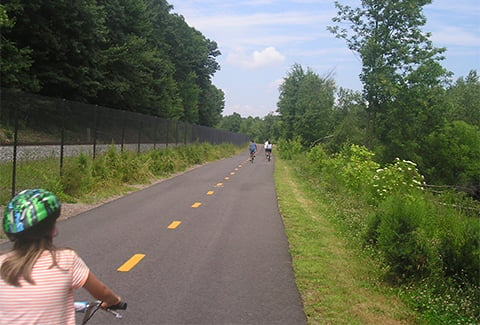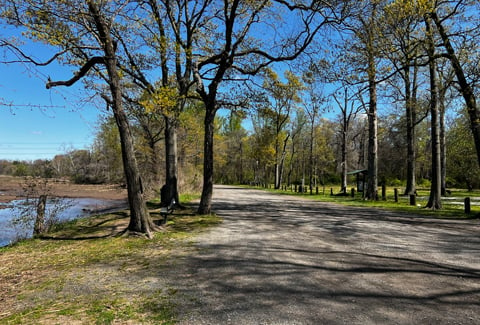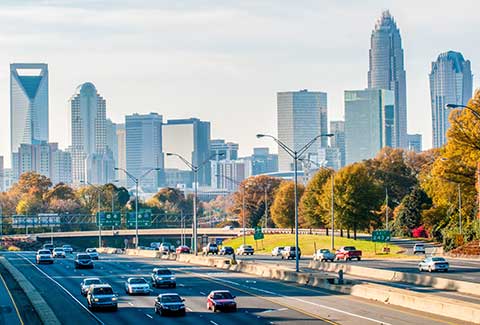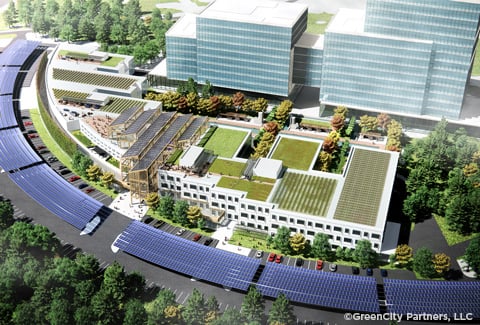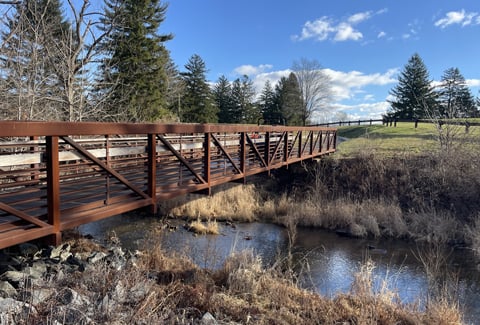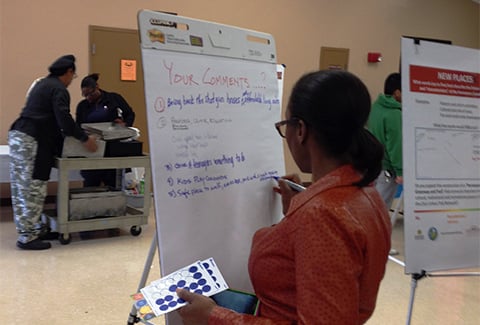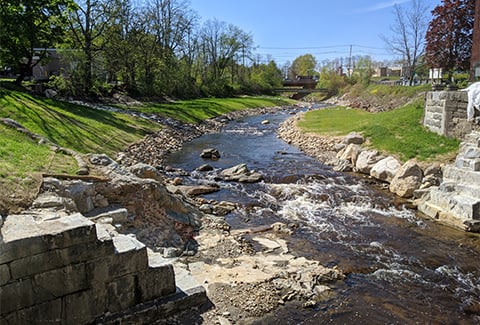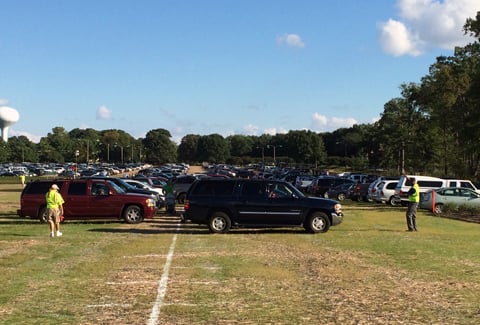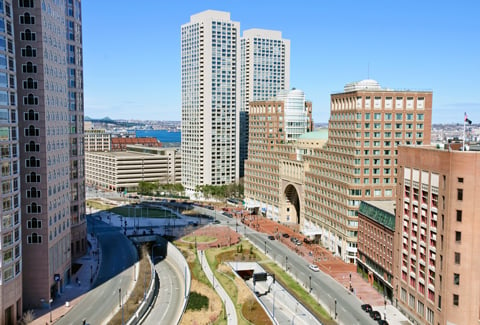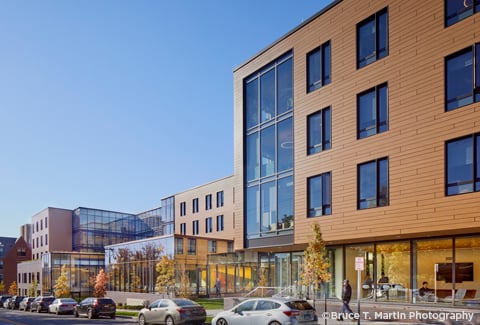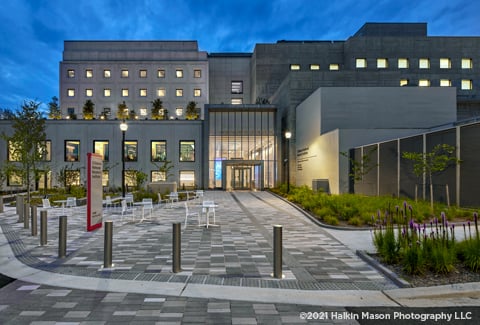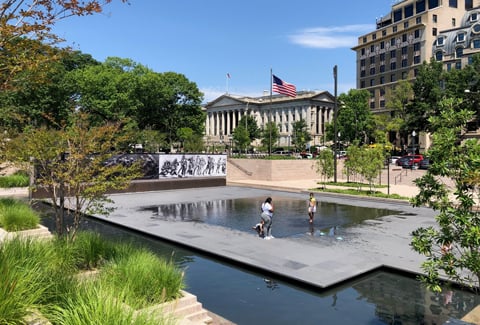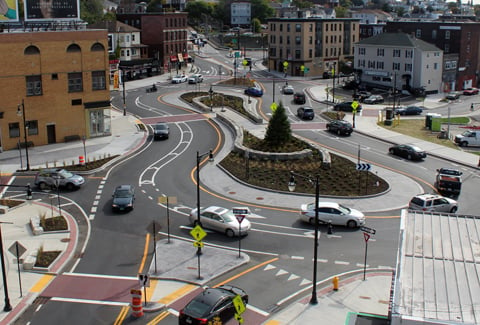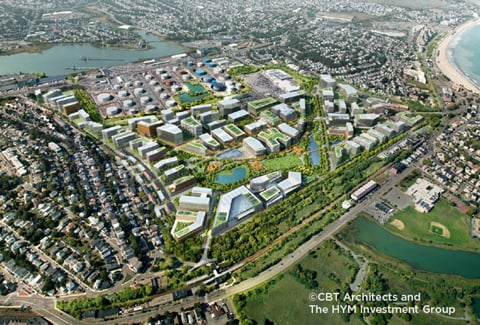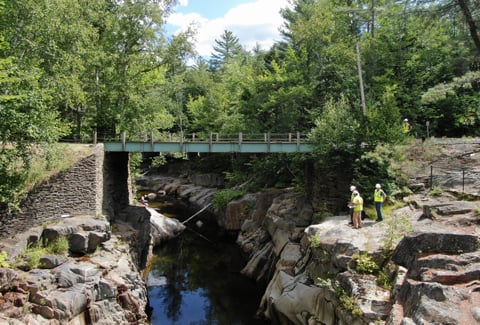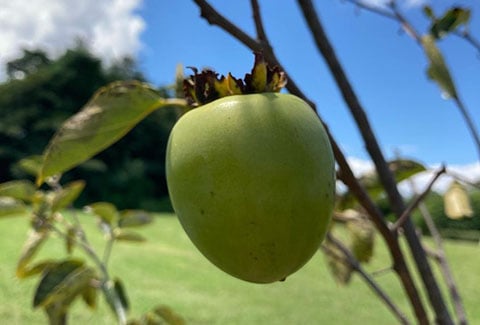Historically, infrastructure across the U.S. has prioritized the automobile above others forms of transportation that promote active, healthier transport, such as biking and walking. As residents and community leaders of Cambridge, and Watertown, Massachusetts, faced the neglected Greenough Boulevard, they were resolute on a transformation that would provide a healthier, safer, and resilient community. Built in 1965 and part of the Charles River Reservation corridor, the roadway had multiple lanes that encouraged speeding, damaged guardrails, an unsafe path along the river, and unsightly drains into the river. The VHB-led transformation team worked extensively with project stakeholders to recapture more than 1.5 acres of parkland adjacent to the Charles River, creating a safe and welcoming multi-use path with comfortable spaces to relax while enjoying views of the River. The Greenough Greenway project highlights how to successfully address a city’s transportation requirements while also valuing community needs and environmental concerns.
Social—The Lawrence and Lillian Solomon Foundation was eager to slow down traffic on Greenough Boulevard. The open stretch of road with wide lanes created unsafe conditions with motorists often speeding through the area. VHB created a road diet that organically slowed traffic by narrowing and reducing the number of lanes from four lanes (two lanes in each direction) to two lanes (one lane with a five-foot shoulder in each direction) along the Boulevard while maintaining existing lane configurations at intersections. These changes allowed the VHB designers to also reduce the amount of pavement, creating more space for visitors and enhancing access to the riverfront. The road diet resulted in improved safety for drivers and more room to welcome all forms of travel—pedestrians, bicyclists, and vehicles.
Environmental—VHB proposed a plan that was sustainable and environmentally friendly, incorporating plant species that do not require the use of fertilizers or pesticides. Only local or non-invasive plant species were selected for the landscaped elements of this project. The team removed mass brush that had grown throughout the years and replaced distressed highway scenery with an open view of the Charles River—welcoming back the riverfront to Greenough Boulevard. The project also preserves floodplain functions and enhances the River’s ecology by avoiding new development, increasing overland flow by adding vegetated swales, and reducing impervious cover by more than 1.5 acres immediately adjacent to the river. Water quality modeling was also conducted to make certain that the project would improve pre-development floodplain infiltration along with the quality of the water flowing into the Charles River.
Economic—Initially envisioned as a pro-bono proposal between VHB and The Lawrence and Lillian Solomon Foundation, the full vision was undertaken when the Massachusetts Department of Conservation and Recreations (DCR) became a partner in the transformational project. The $2.4 million project between the private and public sectors provided an opportunity that would not have otherwise been possible. With the driving force of our private partner, and economic support from our public partner, VHB delivered a project that improved visibility, increased user safety, and contributed to the overall economic health of the surrounding communities.

